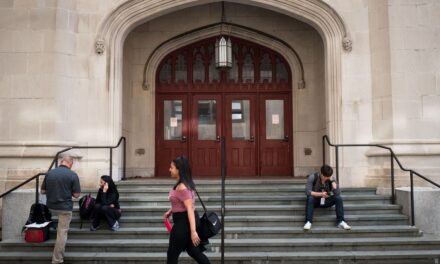A US education may not be the golden ticket to the perfect job for Chinese graduates returning home, a new study has found.
The gap was smaller at foreign-owned firms and at higher-paid positions
Following a large experiment and 260 employer surveys, the study found US-educated Chinese applicants were less likely to be called back by potential employers than their peers who studied in China.
“Many are concerned US-educated candidates are less likely to suit the company’s work culture”
However, this didn’t seem to be due to Chinese employers’ negative perceptions of international graduates – perhaps quite the opposite.
Instead the report attributed it to a lack of knowledge of the US education system coupled with a perception that US-educated applicants may be harder to attract and retain.
Sending out over 27,000 fictitious job applications and randomising the countries of study, a PhD candidate at Princeton University called Mingyu Chen set out to find how Chinese employers value a US college education.
The gap was smaller at foreign-owned firms and at higher-paid positions
The results found that US-educated applicants were 18% less likely to be called for an interview than their Chinese-educated peers, with applicants from very selective US institutions underperforming compared to those from least selective Chinese institutions.
The gap was smaller at foreign-owned firms and at higher-paid positions, suggesting that employers who know more about US education and those advertising more attractive positions are more likely to consider US-educated applicants – although the gap was never fully filled.
Chen told The PIE News that the employability outcomes of returning international graduates need to be more thoroughly investigated – and that information should be available to students and their families.
“Rigorous empirical research on this question is important to economists, policy makers, and families and students,” he said.
“I hope information about international students’ job outcomes, both in the US and in their home country, can be made more available. This information can hold higher education accountable,” he explained.
In his working paper, he also warned that in order to maintain or increase the crucial pipeline of Chinese enrolments, US colleges should ensure their students have a smooth transition back into the Chinese labour market.
There are two ways in which institutions can help their Chinese students, he told The PIE. The first is to ensure Chinese employers know about the university.
“Compared to candidates from Chinese institutions that they are familiar with, hiring managers may just choose to not to take a risk on a graduate of a US institution,” he explained.
“Working with [recruitment] companies to advertise their schools, hosting overseas career fairs or college fairs for employers, and building oversea networks may help to reduce the informational frictions.”
The second is to help Chinese students navigate the job search in China, which can be very different from that in the US, he explained.
“Most local companies experience high returning international graduate’s expectations”
“Many surveyed hiring managers are concerned that US-educated candidates are less likely to suit the company’s work culture. Schools in the US may want to connect their students to appropriate resources and find experts to provide relevant training,” Chen said.
Commenting on the findings, Shane Dillon, who founded the Asia alumni network Cturtle, told The PIE that although international graduates do have an advantage on local labour markets in terms of income level, their expectations are sometimes unrealistic.
“In general, employers believe returning international students need a reality check on expectations if they have no work experience. Most local companies we engage with experience returning international graduations expectations being too high, and therefore are not as interested to interview,” he said.
“Our research into this shows expectations are made artificially high by marketing material from agents and institutions.”
By Claudia Civinini
This content was found at https://thepienews.com/news/us-educated-chinese-grads-less-likely-to-find-jobs-on-return-study/






Recent Comments